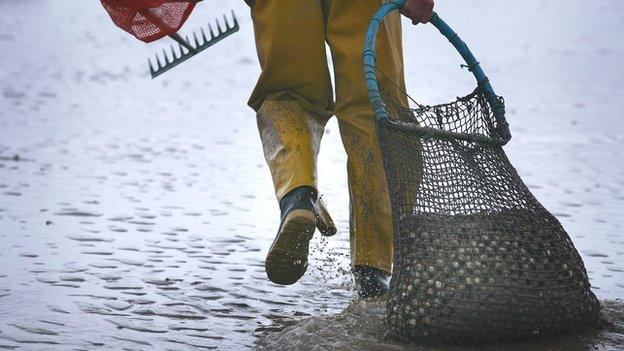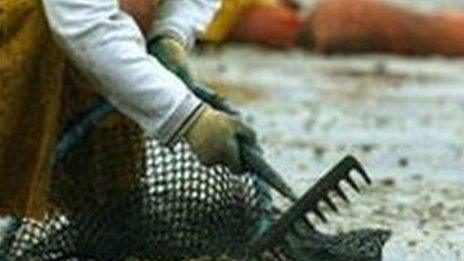Dee estuary cockle beds closed to pickers for 2015
- Published

Strict restrictions on the number of cockle fishing licences were introduced in 2008
A "serious drop" in cockle stocks on the Dee estuary in Flintshire will mean a ban on collecting the shellfish during 2015, say environment officials.
Illegal cockle picking and over-harvesting in 2014 are some of the factors being blamed for the move.
Currently, 53 licences for commercial cockle picking on the estuary are issued every year.
But Natural Resources Wales said current stocks fall "far short" of those needed for sustainable fishing.
It is the first time since 2008 the cockle beds have been closed to commercial pickers, which also was the first year a tough new licensing regime was introduced.
Illegal cockle pickers have been blamed for a drop in stocks in Flintshire
The industry is worth an estimated £40,000 a year to cockle pickers, who are licensed to harvest the shellfish for six months.
"We know that this will come as a blow to the licencees who make a living from the cockle beds, but despite our best efforts, the unexpected drop in stock levels this year has left us with no choice but to close the beds," said NRW executive director, Tim Jones.
"The current stock of cockles will be carefully monitored and looked after so it can survive and help provide enough cockles to support the licencees' livelihoods, and the bird populations for next season."
- Published26 March 2012

- Published11 November 2012
